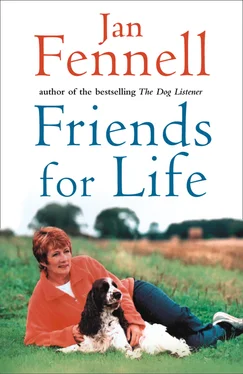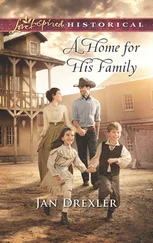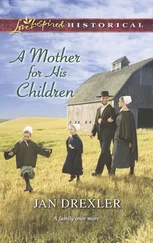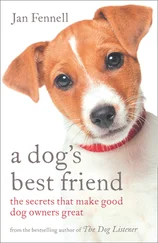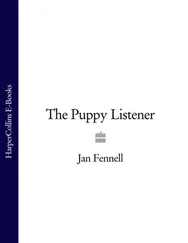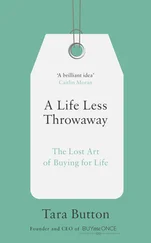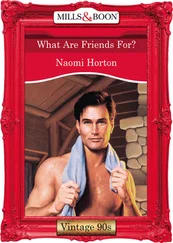If Nan Fennell was a powerful force within the family, so too was my grandfather’s brother, Jim, by far the most colourful of the clan. I remember vividly the day I finally summoned the courage to ask him about the awful lump he had on the back of his neck. How could I ever forget the story he told me?
As a thirteen-year-old boy growing up in Fulham at the end of the nineteenth century, Jim had headed off to see Buffalo Bill Cody’s great Wild West show at Earls Court in 1896. He was so overwhelmed by what he saw that he went home that evening and promptly announced he was joining the show and heading off on their European tour.
He was the little boy who ran off with the circus – and a memorable time he had too. His experience working with horses stood him in good stead and he was put in charge of Buffalo Bill’s stable.
Great-Uncle Jim was the family’s natural performer, however, and he soon persuaded Buffalo Bill to give him a place in the show. While driving the famous Deadwood Stagecoach around the arena one night he was hit on the back of the neck by an Indian tomahawk. The blow was accidental but it split his neck wide open. ‘That’s where the hatchet hit me,’ he told me.
It was Jim who introduced me to the first important animal in my life, his horse Kitty. Kitty was a typical Thelwell pony, as wide as she was tall, black with a long mane, her tail trailing down to the ground.
Great-Uncle Jim kept her in stables in Battersea Park, where he also kept the cart from which he sold his fruit and vegetables. I vividly remember Great-Uncle Jim placing me on her back and feeling the warmth and softness underneath me. Together we spent hours padding around Battersea on his horse and trap, talking about his adventures – and his love of horses.
Great-Uncle Jim had learned a lot from the native Americans he had worked with during his time with Buffalo Bill. He remembered one of them coming up to one of the horses one day before a performance, looking at it and saying: ‘That horse is lame.’ The cowboy who was due to ride the horse wasn’t having any of it. ‘To my shame I got the horse ready and let it go out into the arena. When it came back it broke down,’ Uncle Jim told me. ‘Bill Cody asked, “Didn’t anybody spot it?”’ Great-Uncle Jim said: ‘He did,’ and pointed to the native American.
Great-Uncle Jim had a huge respect for the quiet courage of those men. He disliked intensely the way they were presented as the ‘baddies’ in Buffalo Bill’s show, in which the white men were always being rescued from the redskins. But from the stories he had heard the native Americans tell of their time back in the West, he wondered who needed rescuing from whom.
In that sense he was the first person who made me think about injustice. He gave me another important idea too.
His relationship with Kitty was almost telepathic. I remember Great-Uncle Jim used to be able to lay down the reins, put his arm around me and whisper a gentle, ‘Take us home, Kit.’ In London in those days there was hardly any traffic. Kitty would take her time going home at her own pace.
At the stables where he kept Kitty he would sit me on her, bareback, and tell me how important it was to become one with the horse, to become part of it. He didn’t like the way ‘the nobs’, as he called them, used to ride, with a saddle and a whip. He would say: ‘You must breathe at the same rate as it. Until you can take in every breath that it takes you’ve got nothing.’ Again this was something he had picked up during his time with the native American horsemen.
Looking back on it now, I realize it was Great-Uncle Jim and Kitty who first instilled in me the idea of animals and humans working in harmony. As a little girl I saw them working together instinctively, as a team. There was no coercion, they understood each other perfectly. It seemed like the most natural thing in the world.
Chapter 3
A Secret Happiness
In 1951, as a three-year-old, my mum and dad took me to the Festival of Britain celebrations, just across the river in Battersea Park. The images of that day are burned indelibly into my memory.
I was too young to understand the wave of optimism the Festival had inspired. But I do vividly remember the sheer joy of the occasion. I remember my father and Uncle Fred were both wearing white shirts. In the sunshine they seemed dazzling – just like everything else in the park.
Battersea Park was filled with people. I recall the carousels and the candy floss, the sounds of the hurdy-gurdies and the fairground hucksters inviting people to ‘Roll up, roll up’. But the thing that created the greatest impression was the little grey-white pony that was giving children rides in a special arena.
I immediately asked my parents for a ride. But, just as quickly, my mother made her opposition plain.
‘You don’t want to go on that nasty smelly thing,’ she said. I was dressed in a smart new plaid dress, I remember. ‘You don’t want to ruin your nice dress.’
It was my Uncle Fred who conspired to help me. My mother wandered off at some point. I remember Uncle Fred bending down, beckoning to me and whispering. ‘Come on, come on. Now’s your chance,’ he said.
I ran over to the pony arena with him. Before I knew it I was being lifted on board the beautiful grey-white pony.
I’d yet to meet Uncle Jim’s Kitty so this was the first time I’d sat on a horse. I can still remember the pungent smell. It was lovely then and remains so to this day. Forget your Chanel No. 5. As I was led around the arena on horseback I remember feeling on top of the world. I felt like a princess, it was so special. I would have stayed there all day.
One of the attendants led the pony round in a slow circuit of the arena. As he took me back to where I’d started I saw my time was up. I could see my dad and Uncle Fred with big beaming smiles but behind them was my mother with a face like thunder.
‘I thought I said she couldn’t, Wal,’ she snapped at my father as I was led away from the arena a few moments later. ‘What’s the point of putting her in nice clothes if they’re going to smell of filthy animals?’
The incident confirmed something that was already becoming clear to me. There was a clear hierarchy in our house. And I was at the bottom of the pecking order.
My parents’ attitude to children was a throwback to the Victorian era in many ways. I should be seen and not heard. My opinion wasn’t of any importance to anyone. All that mattered, to my mother at least, was that I present a happy, polite, smiling face to the world. Unless, that is, she wanted to show off my singing and dancing abilities at a family gathering. Even then, the only words I got from her were chastisement if I hadn’t done something to the standard she expected.
At the time this upset me deeply, but I no longer feel that way. I understand now that she was merely reflecting the values passed on to her. She and my father were trying to provide a better life for me than they had enjoyed themselves. But it was as if they had had me out of a sense of duty, and then resented the duty that came with it.
There was no doubt they gave me the best they could afford. They bought me lots of toys, for instance. But then they would spoil it by not allowing me to play with them because they got in the way and messed up my mum’s house. I was only allowed to play with one toy at a time.
There was no point arguing about things like this. I was expected to accept that they did things for my own good. If I ever upset the apple cart, they’d say: ‘After all I’ve done for you …’ And if I protested too much, my mother was very quick to smack.
If I was at the bottom of the pecking order at home, my mother was very much at the top.
Читать дальше
